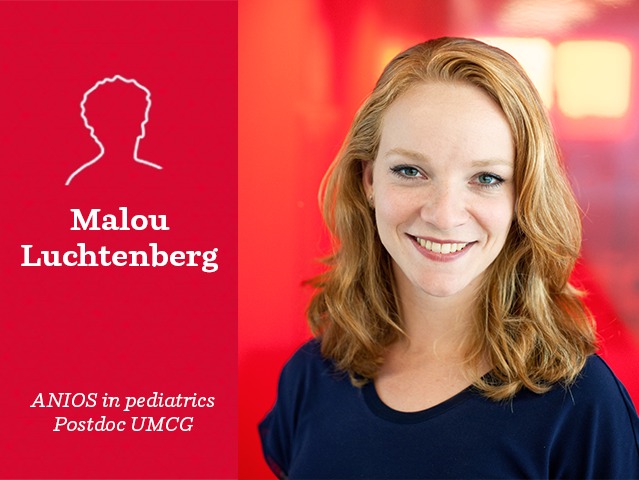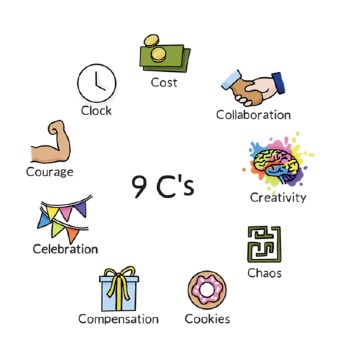ATN blog - On a journey to find children's voices in medical research
| Datum: | 01 oktober 2021 |

“I think it was really good because my parents let me decide, they didn’t see it as their decision. They realized that I was mature enough and it was my life I was playing with and that I should be able to make that decision. I mean, parents as well as doctors have to understand that when a child gets a serious illness, they’re not children anymore. They’re almost adults in the way they think and the way they do things.”
(Mohini, 12 years old, diagnosed with acute lymphoblastic leukemia at the age of 9)
This is where my research journey started: an intriguing quote from Mohini, a girl only 12 years old, explaining how important it is to listen closely to children who are invited to participate in medical research. I came across this quote on the Health Talk website (healthtalk.org), which contains the stories collected by academic researchers from the University of Oxford of people whom they interviewed in their own homes. Mohini’s story about her decision whether to participate in medical research and the stories of other children touched me. It made me realize how unique children’s voices are. It also made me wonder how children in the Netherlands are involved in decisions about their participation in research. Why do they want to take part in research, or why not? When is a child mature enough to make such a decision? What is the role of their doctor? And what kind of support do children need? In my PhD research, I aimed to give a voice to children in medical research for improving research to better meet children’s needs and wishes. Therefore, I interviewed Dutch children about their experiences.
Taking a side road: children as co-researchers
At the time I finished the first interviews and started analyzing them, I realized that I needed to take it to a next level. In qualitative studies, researchers should be wary of interpretation bias. The analysis includes a subjective component that calls for reflexivity. Children’s experiences and social situations differ from those of us (adults). That’s why I decided to ask children, other than my interviewees, to help me as coresearchers to strengthen the interview analyses. This was the beginning of a great adventure in a relatively new field. Challenging and time consuming, but definitely worthwhile and not to forget very fun to do!
Through a two-step approach, we, child-researchers and adult researchers, analyzed parts of the interviews together, using videos and mind maps. We looked into advices of the interviewees to improve their experiences with research participation. The collaboration with children really shaped me as a researcher. As adult researchers, we tend to look for abstraction, and we search for the bigger picture, or helicopter view. While this is a skill we definitely need in research, children taught me not to lose sight of the details. For example, one of the interviewees advices that we analyzed was to make sure there is distraction or something to do while they had to wait for a research procedure. Our co-researchers pointed out that when implementing this in practice, we should not lose sight of the exact examples the interviewees gave, and the fact this might vary among children. This is just one little example that may seem very obvious. But in practice I now realize that sometimes as adults we try to include children, with our best intentions, in a way that matches ours more than their experiences. Our co-researchers themselves learned a great deal too. It made them aware of the importance of research and they empathized with the interviewees. As my coresearchers were mostly not patients themselves, they learned about the medical field and were happy to be able to help other children, even if those were unknown to them. Through working with children, I was challenged to think about ways to communicate science to children and be creative in my choice for work forms that match their interest and stimulate interaction, to give them tools to work with without defining exactly how and what to do because I didn’t want to influence the outcome of the process. I learned that the impact of these collaborations cannot be predicted and moreover, that we should not underestimate the contribution of children. It is the interaction of everyone involved and the entire process that will impact your future research journey, as long as you will create an environment in which children have the potential to be empowered; to learn, share and grow together! Then your collaboration will have the potential to bridge the gap between the academic world and society.
The way forward: start your own collaboration with your target research group!
I’d like to challenge you to start a dialogue with people from your target research group, to tailor your study towards their needs and wishes by including them as co-researchers rather than only as your participants. Believe me, it will make your research more relevant and morerewarding for you personally.

How to accomplish a good collaboration? The answer is not so easy. Each study is unique and collaborations are complex. Because of this complexity, there is no one-size-fits-all tool. With feedback from children and other experts, we developed the Nine Cs with key elements for a good co-creation. I hope it helps you to start your own project! Good luck;)
Want to know more? You can find detailed information about the Nice C’s, and the answers to the questions my journey started with in my thesis “A Network of Exchange: towards the empowerment of children participating in medical research”, which was supervised by prof.mr.dr. Eduard Verhagen (head of the Beatrix Children’s Hospital), and dr. Els Maeckelberghe (ethicist), and performed at the University of Groningen, University Medical Center Groningen.
dr. Malou Luchtenberg
Resident (not in specialist training) Pediatrics Medical Center Leeuwarden | Researcher Beatrix Children's Hospital, UMCG
This blog was made possible by the Aletta Talents Network. If you would like to contribute a blog for the ATN, please contact Tom at t.a.lowe rug.nl
Click here to join the Aletta Talents Network!



